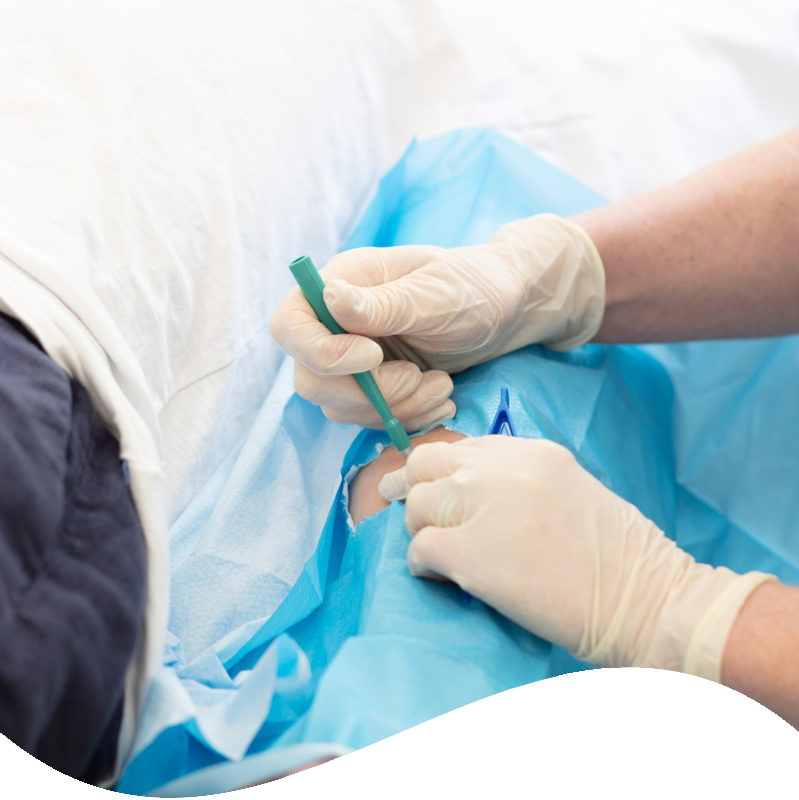Skin Cancer Screening Clinic
![]()
What is it?
Subi Derm's Skin Cancer Screening Clinic sets out to make skin cancer checks more accessible for our patients with medically low risk circumstances. With shorter waiting times and not requiring a GP referral, have your skin checked by Dr Esmee Cordes, she is able to promptly help patients with their skin cancer concerns.
Skin cancers are most often caused by spending too much time in the sun, the Australian sun in particular is quite harsh on our skin. Excessive ultraviolet radiation can upset normal skin cells and over time they become abnormal. The damaged cells can then grow out of control, leading to precancerous skin lesions that can become skin cancers.
Dr Esmee Cordes will assess your skin cancer concerns, Dr Esmee Cordes works in collaboration with Dr Stephanie Weston (Dermatologist MBBS FRACP FACD), to create a tailored treatment plan that aims to improve your skin health.
Risk factors for skin cancer include:
- Family history
- Sun exposure (e.g., during childhood or from working outdoors)
- Fair skin
- Lots of moles or atypical moles.

Types of skin cancers
Basal Cell Carcinoma (BCC): The most common type of skin cancer in Australia. Basal cells are located in the top layer of the skin. The most common areas for them to occur are sun exposed sites like the face, head, neck, arms and back. This type of skin cancer grows very slowly and rarely spreads. It needs to be removed otherwise it will continue to grow and could spread into the deeper tissues below the skin. Your dermatologist will advise you on the best treatment options for your BCC depending on the size, type of BCC and the location on your body. There are a variety of treatments available including nonsurgical and surgical options.
Squamous Cell Carcinoma (SCC): Like BCCs, the squamous cells are located in the top layer of the skin. SCC is relatively common in Australia and appears in sun exposed areas like the face, scalp and the back of hands. SCC’s need to be removed completely as they can spread to other parts of the body if left untreated.
Melanoma: These are less common skin cancers but, as they can spread to other areas of the body, early removal is important. Melanomas are usually irregularly shaped and multicoloured skin spots. They can be a brand-new spot in previously normal skin or may start from a mole that was already present. This mole will usually change over a few months. The signs to look for in a changing mole are increased size, change in shape or colour and new lumps within it.
Meet Dr Esmee Cordes
General Practitioner with special interest in Skin Cancer, MD FRACGP
Esmee obtained her medical degree in The Netherlands and finished her GP training in Amsterdam in 2001. She moved to Western Australia in 2006, became a fellow of the Royal Australian College of General Practitioners in 2007 and has lived and worked in The Pilbara and Broome for 13 years. She moved with her family to Perth in 2019 and is enjoying the city life and the cooler climate.
Esmee has developed a special interest in skin cancer medicine and skin cancer surgery, she has completed several quality assured (Bond University, QLD) certificate courses in these fields of medicine and has been seeing patients for full skin checks and skin cancer procedures in a GP setting for 15 years.
Dr Cordes is available for skin cancer screening and routine skin checks on Tuesdays and Wednesdays. A GP referral is not required unless you wish correspondence back to your usual GP.

Book Now
Due to current demand, we have a waiting time of 4 to 7 months for new patients with Dr Stephanie Weston.
